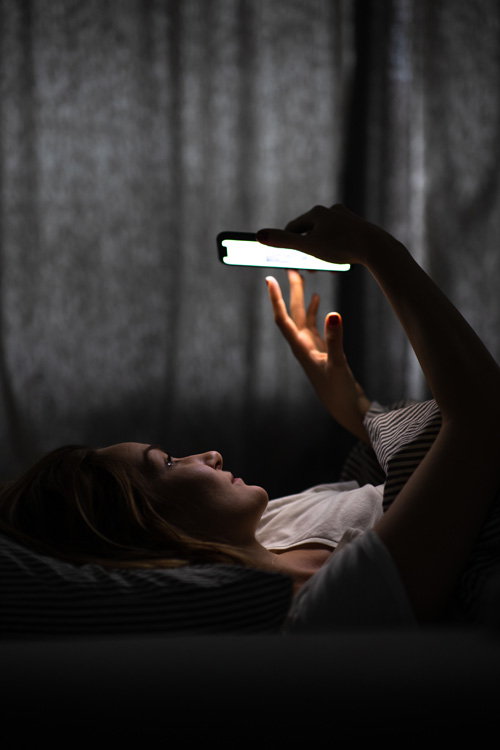If you’ve ever found yourself wide awake at 3 a.m.—heart racing, mind buzzing, body restless—you’re not alone. Insomnia affects millions, and while stress, hormones, and screen time get most of the blame, there’s another major player that’s often overlooked:
Histamine.
Yes, the same chemical that’s involved in allergies and food reactions is also one of your brain’s most powerful wakefulness signals. For many people, histamine intolerance or mast cell activation is the hidden cause behind their racing, restless nights.
What Is Histamine?
Histamine is a natural compound involved in immune responses, digestion, neurotransmission, and inflammation. It’s stored and released by mast cells, and it plays a vital role in:
- Dilating blood vessels
- Regulating stomach acid
- Modulating hormone release
- Signaling the brain to stay alert and awake
While histamine is essential, too much of it—especially at the wrong time—can disrupt sleep patterns in significant ways.
How Histamine Affects Sleep
Unlike melatonin or GABA, which help the brain wind down, histamine is a stimulant in the central nervous system. In fact, histamine-releasing neurons in the brainstem are key components of the wake-promoting system.
Here’s how histamine interferes with sleep:
- Delays sleep onset (trouble falling asleep)
- Disrupts deep sleep stages
- Triggers early waking (especially between 2–4 a.m.)
- Increases heart rate and body temperature at night
- Enhances nighttime anxiety and restlessness
If your mast cells are overactive—whether due to histamine intolerance, mast cell activation syndrome (MCAS), perimenopause, gut issues, or environmental triggers—they may be releasing histamine at night, keeping your brain on high alert when it should be at rest.
Signs Your Insomnia May Be Histamine-Driven
You might suspect histamine is behind your sleeplessness if:
- You feel wired but tired at night
- You wake at the same time every night, especially early morning
- Antihistamines (like Benadryl) help you fall asleep
- Your sleep is worse after certain foods or wine
- You get hot, itchy, or flushed at night
- You experience nighttime anxiety or heart palpitations
- You have other histamine-related symptoms: bloating, hives, headaches, nasal congestion, etc.
If these resonate, your insomnia may not be “just stress” or “too much screen time.” It might be histamine working behind the scenes.
Common Histamine Triggers That Affect Sleep
- High-histamine foods (aged cheese, wine, vinegar, smoked meats, leftovers)
- Heat exposure (hot showers or saunas before bed)
- Hormonal shifts (especially around ovulation or in perimenopause)
- Gut dysbiosis, which can increase histamine-producing bacteria
- Environmental triggers (dust, mold, pollen, fragrances)
- Stress, which directly stimulates mast cells to release histamine
What You Can Do About It
1. Adopt a Low-Histamine Diet
Focus on fresh, unprocessed foods and avoid histamine-rich or histamine-releasing items like alcohol, soy, tomatoes, and fermented foods—especially at dinner.
2. Use Natural Mast Cell Stabilizers
Supplements like quercetin, vitamin C, luteolin, and nigella sativa can calm mast cell activity and reduce nighttime histamine surges.
3. Support Histamine Breakdown
Consider using DAO (diamine oxidase) enzyme supplements with meals to help your body break down histamine more effectively.
4. Try Antihistamines—Strategically
In some cases, H1 blockers (like cetirizine or hydroxyzine) and H2 blockers (like famotidine) may be helpful at night. Always consult a healthcare provider before beginning new medications.
5. Regulate Your Nervous System
Breathwork, vagal tone exercises, and trauma-informed movement can reduce sympathetic overdrive—helping both your nervous system and mast cells settle at night.
6. Improve Sleep Hygiene—With a Histamine Lens
Avoid intense exercise, large meals, alcohol, or emotional stress in the hours before bed—all of which can increase histamine release.
The Bottom Line
If your insomnia is stubborn, cyclical, or linked to food and environmental triggers, it’s time to look deeper. Histamine may be the silent stimulant keeping your brain in go-mode all night long.
The good news? Once you identify it, you can manage it—and finally get the sleep your body has been craving.






